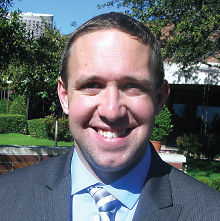LGBT Psychiatric Leaders Reflect on Landmark Supreme Court Ruling
Abstract
The court’s decision brings legal as well as mental health benefits to gays and lesbians, but this is not a time for complacency—they will continue to face challenges that require additional advocacy.
The Supreme Court’s ruling validating same-sex marriage in all 50 states and Washington, D.C., will significantly enhance the lives of gay and lesbian couples everywhere, providing legal but also important mental health benefits.
The court handed down a 5-4 decision in June in the case Obergefell v. Hodges stating that the 14th Amendment requires a state to license a marriage between two people of the same sex and to recognize a marriage between two people of the same sex when their marriage was lawfully licensed and performed out of state.
In the majority opinion, Justice Anthony Kennedy wrote, “[M]arriage embodies a love that may endure even past death. It would misunderstand these men and women to say they disrespect the idea of marriage. Their plea is that they do respect it, respect it so deeply that they seek to find its fulfillment for themselves. Their hope is not to be condemned to live in loneliness, excluded from one of civilization’s oldest institutions. They ask for equal dignity in the eyes of the law. The Constitution grants them that right.”
Chief Justice Roberts and Justices Anthony Scalia, Clarence Thomas, and Samuel Alito filed dissenting opinions.
In comments to Psychiatric News, psychiatrist leaders of the LGBT community say the landmark ruling bestows on gay and lesbian Americans—including patients receiving psychiatric care—a benediction of acceptance and approval for their relationships.

Ubaldo Leli, M.D., representative to the APA Assembly from the Gay, Lesbian, and Bisexual (GLB) Caucus, says that the Supreme Court ruling provides a stable sense of identity and comfort.
Ubaldo Leli, M.D., representative to the APA Assembly from the Gay, Lesbian, and Bisexual (GLB) Caucus, spoke from his own experience as a gay man who had grown up in Italy and had been on the receiving end of taunts and mockery in his youth.
“I have been with my husband for 30 years and was married in 2013 in New York state,” he said. “The Supreme Court decision was a great relief to me and my husband, confirming the legitimacy of our marriage, which has provided a stable sense of identity and comfort.”
Prior to the ruling, he and his husband—like other gay couples married in states that had permitted same-sex marriage—could not know with assurance how their marriage would be regarded outside the state where they formed their union.
For patients receiving psychiatric treatment, Leli said the ruling is a “major step forward,” noting that many patients’ symptoms crystallize around sexual identity. He is a psychoanalyst at the Columbia University Center for Psychoanalytic Training and Research and a past president of the Association of Gay and Lesbian Psychiatrists.
Leli’s comments were echoed by other leaders of the GLB Caucus. “The recent Supreme Court decision making same-sex marriage now legal in all 50 United States will have a profound effect on generations of gay and lesbian people,” said Marshall Forstein, M.D., president of the caucus. “Children being born today with same-sex orientation will have the legal rights, if not total social approbation, to love and marry whom they choose.
“[T]here is legal standing now guaranteed for same-sex marriages that also provides for several thousand federal benefits that can amount to significant security for families in terms of child custody, finances, taxes, and inheritance,” Forstein said. “Acceptance comes with social change, but laws provide the scaffolding for that change and allow for the integration of same-sex families to engage in the world on equal footing.”
He added that “psychologically, there are significant benefits” growing up in a society in which one is valued for one’s authentic self. “Hiding the authentic self from the self and others can lead to internalization of negative self-images, fear, anxiety, depression, and social isolation at times when attachment to peers, families, and cultural and spiritual groups provide important aspects of healthy development.”
Forstein, who is an associate professor of psychiatry at Harvard Medical School and director of the adult psychiatry residency training program at the Cambridge Hospital, said he believes the court’s decision is the result of a generational shift in attitudes that began when gay people started coming out. “More than ever, Americans know people who are gay who live and work side by side, raising children and contributing to the everyday life of their communities,” he said.
But he cautioned that gay people continue to face challenges that require advocacy. “For the gay community, there are still great obstacles ahead. It is possible now to be married to your same-sex partner in the morning, return to work in the afternoon, and be fired in many states simply by being gay and having employers state their religious objections. Job discrimination, adoption rights, and other issues will continue to be in need of advocacy and legal change.”
Andrew Tompkins, M.D., deputy representative of the caucus, noted the June 26 decision by the Supreme Court was handed down just two days short of the 46th anniversary of the Stonewall Riots that ignited the modern gay rights movement.
“Marriage is an institution that has legal as well as mental health benefits,” Tomkins said. “Rigorous research has shown improvements in depressive symptoms and substance use disorders in married couples compared with unmarried individuals. Furthermore, recent studies have shown that married same-sex couples have less psychological distress compared to unmarried same-sex couples. In addition, simply having the opportunity for legal recognition of marriage provides significant benefits for mental health for same-sex patients—irrespective of whether the person is married. We believe this is due to decreased stigma and increased societal acceptance of LGBT individuals.
“APA is a strong advocate for same-sex marriage recognition because the beneficial effect of marriage on mental health has been well established. LGBT patients in psychiatric care will hopefully see many benefits of acceptance and approval of their relationships. Now, patients will be able to freely move knowing their relationships will be honored in all 50 states.”

Brian Hurley, M.D., a delegate to the AMA Section Council on Psychiatry from GLMA: Health Professionals Advancing LGBT Equality, says the right to marry is associated with tangible and intangible benefits, including access to mental health care coverage through spousal insurance.
Brian Hurley, M.D., a delegate to the AMA Section Council on Psychiatry from GLMA: Health Professionals Advancing LGBT Equality (formerly known as the Gay and Lesbian Medical Association), also hailed the decision.
“I join millions of Americans in celebrating the recent Supreme Court decision recognizing that same-sex couples have a fundamental right to marry under the U.S. Constitution,” he told Psychiatric News. “Access to marriage protects and promotes the mental health of same-sex couples, as marriage is associated with myriad tangible and intangible benefits, specifically including access to mental health care coverage through spousal insurance. Moreover, marriage equality ends a deep and scarring legal hardship for same-sex couples and reduces the minority stress impacting the mental health of sexual-minority communities.”
Hurley added, “APA has a strong policy affirming the invariably positive influence of a stable, adult partnership on the health of all family members, and GLMA has been proud to contribute to efforts alongside many organizations, including APA, in support of marriage equality.” ■
The Supreme Court’s decision in Obergefell v. Hodges can be accessed here.



